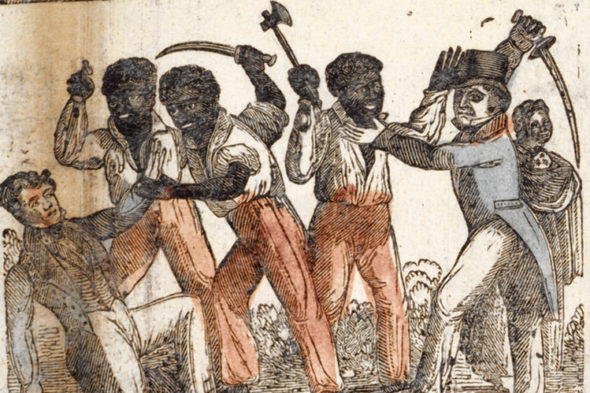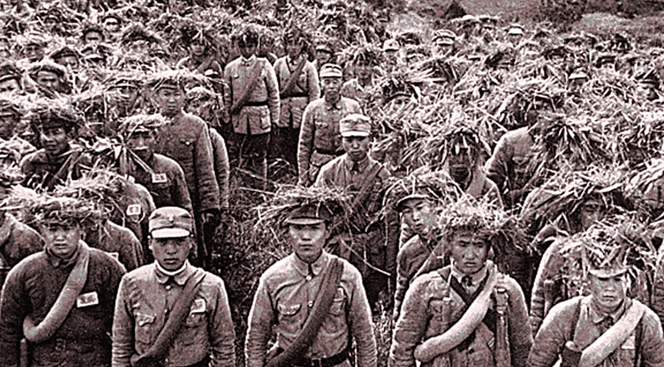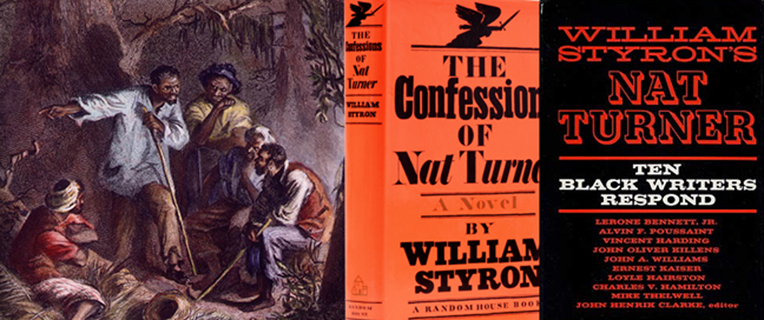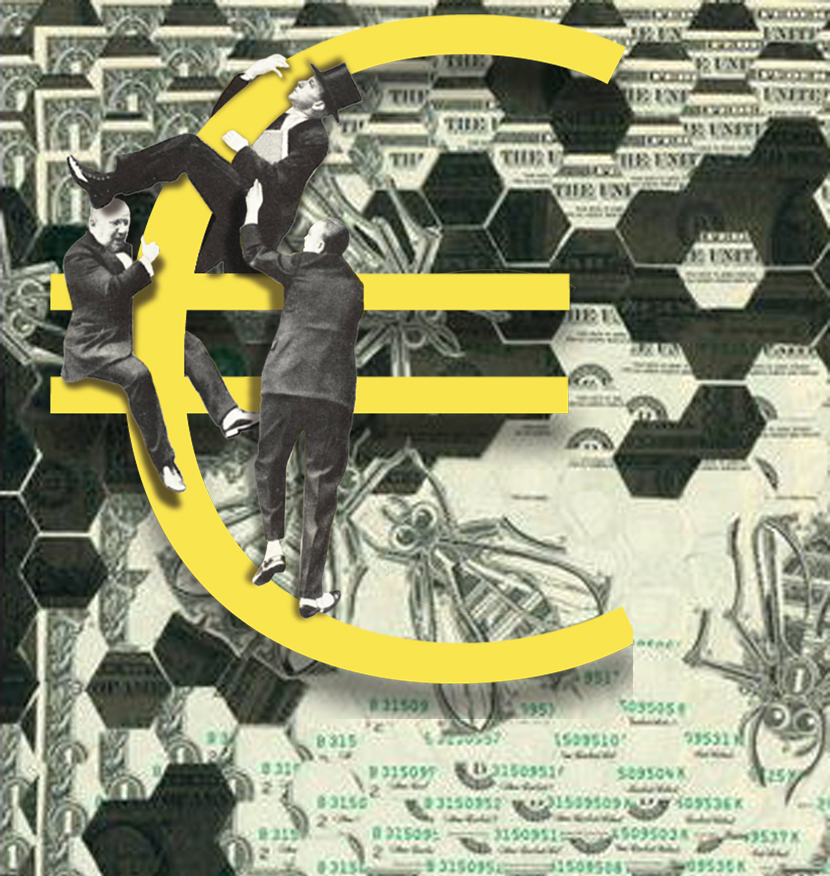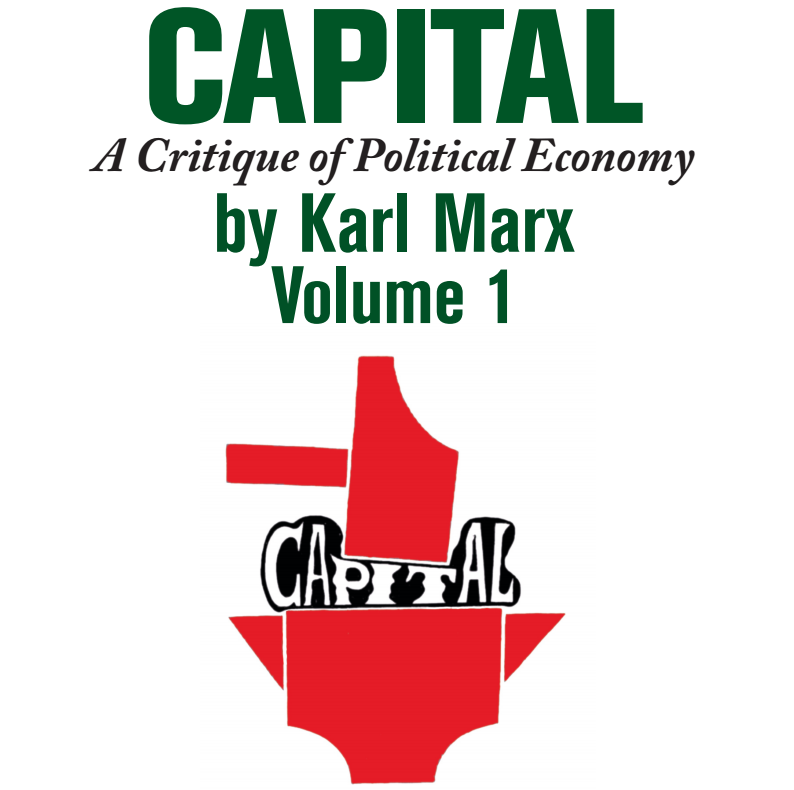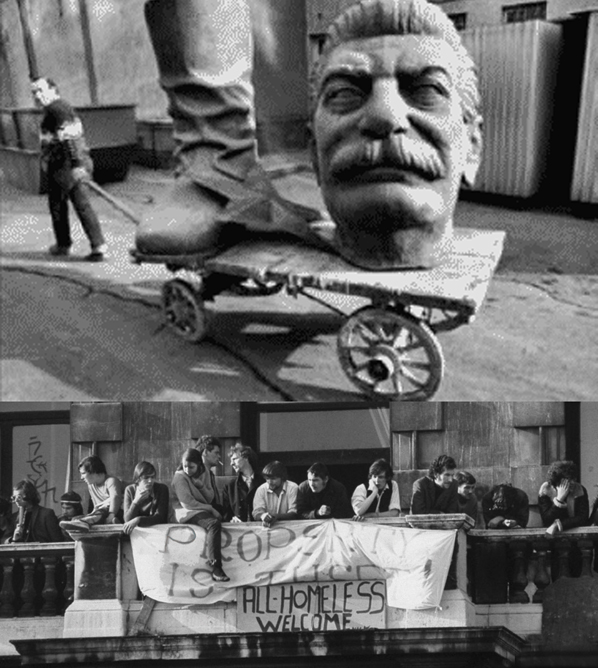Calendar of Events
S Sun
M Mon
T Tue
W Wed
T Thu
F Fri
S Sat
1 event,
A People’s History of the World
A People’s History of the World
Convened by Branden Rippey Downtown Newark on Orchard Street Using A People’s History of the World by Chris Harman, this course will study the broad trends in the history of our world, from early human civilization to today. We will complete the book during this term, covering events from 1750 through our present day. The ... Read more
1 event,
The Chinese Revolution: 1930-1949
The Chinese Revolution: 1930-1949
We begin with the Chinese Revolution in 1930, after the nationalist party led by Chiang Kai Shek turned on the mass movement, slaughtered militant workers and peasants, and declared war on Communists. After the war, the struggle between the armies of Chiang Kai Shek and the Communists resumed, ending with Chiang's fleeing to Taiwan and the final victory of the Communist army in 1949.
0 events,
0 events,
2 events,
Styron’s Confessions of Nat Turner
Styron’s Confessions of Nat Turner
In Styron's novel and in the response from 10 African-American writers, numerous questions concerning race, class, the rendering of historical presentation, claims on sectors of our shared history, etc. are raised. We will discuss as many of these questions as possible including having a careful read of James Baldwin’s essay concerning the work and subsequent controversy.
The Political Economy of Money and Finance
The Political Economy of Money and Finance
This reading group will undertake a close reading (over 10 weeks) of Costas Lapavitsas and Makoto Itoh’s book Political Economy of Money and Finance. The book attempts to offer a systematic theoretical examination of money and finance by re-examining the classical foundations of political economy and the creator of money and assessing all of the important theoretical schools since then, including Marxist, Keynesian, post-Keynesian and monetarist thinkers.
0 events,
1 event,
Capital: Volume 1
Capital: Volume 1
This group will meet each Saturday to discuss Volume One of Capital. There will be a close reading of the text. All questions on each section will be addressed and the reading discussion leaders will be prepared to assist between sessions on areas that may be difficult to understand.
1 event,
A People’s History of the World
A People’s History of the World
Convened by Branden Rippey Downtown Newark on Orchard Street Using A People’s History of the World by Chris Harman, this course will study the broad trends in the history of our world, from early human civilization to today. We will complete the book during this term, covering events from 1750 through our present day. The ... Read more
1 event,
The Chinese Revolution: 1930-1949
The Chinese Revolution: 1930-1949
We begin with the Chinese Revolution in 1930, after the nationalist party led by Chiang Kai Shek turned on the mass movement, slaughtered militant workers and peasants, and declared war on Communists. After the war, the struggle between the armies of Chiang Kai Shek and the Communists resumed, ending with Chiang's fleeing to Taiwan and the final victory of the Communist army in 1949.
0 events,
1 event,
Archive That Comrade!
Archive That Comrade!
...how successful has the New Left been in challenging the multi-media apparatus of fame and celebrity which has come to dominate the politics of public commemoration? How far can the rise of the populist archive, designed to communicate ‘positive images’ of maligned minorities, be seen as a response both to the death of the collective hero, and as a reaction against the competitive individualism promoted by the fame academy?how successful has the New Left been in challenging the multi-media apparatus of fame and celebrity which has come to dominate the politics of public commemoration? How far can the rise of the populist archive, designed to communicate ‘positive images’ of maligned minorities, be seen as a response both to the death of the collective hero, and as a reaction against the competitive individualism promoted by the fame academy?
2 events,
The Political Economy of Money and Finance
The Political Economy of Money and Finance
This reading group will undertake a close reading (over 10 weeks) of Costas Lapavitsas and Makoto Itoh’s book Political Economy of Money and Finance. The book attempts to offer a systematic theoretical examination of money and finance by re-examining the classical foundations of political economy and the creator of money and assessing all of the important theoretical schools since then, including Marxist, Keynesian, post-Keynesian and monetarist thinkers.
Styron’s Confessions of Nat Turner
Styron’s Confessions of Nat Turner
In Styron's novel and in the response from 10 African-American writers, numerous questions concerning race, class, the rendering of historical presentation, claims on sectors of our shared history, etc. are raised. We will discuss as many of these questions as possible including having a careful read of James Baldwin’s essay concerning the work and subsequent controversy.
0 events,
1 event,
Capital: Volume 1
Capital: Volume 1
This group will meet each Saturday to discuss Volume One of Capital. There will be a close reading of the text. All questions on each section will be addressed and the reading discussion leaders will be prepared to assist between sessions on areas that may be difficult to understand.
0 events,
1 event,
The Chinese Revolution: 1930-1949
The Chinese Revolution: 1930-1949
We begin with the Chinese Revolution in 1930, after the nationalist party led by Chiang Kai Shek turned on the mass movement, slaughtered militant workers and peasants, and declared war on Communists. After the war, the struggle between the armies of Chiang Kai Shek and the Communists resumed, ending with Chiang's fleeing to Taiwan and the final victory of the Communist army in 1949.
0 events,
0 events,
2 events,
The Political Economy of Money and Finance
The Political Economy of Money and Finance
This reading group will undertake a close reading (over 10 weeks) of Costas Lapavitsas and Makoto Itoh’s book Political Economy of Money and Finance. The book attempts to offer a systematic theoretical examination of money and finance by re-examining the classical foundations of political economy and the creator of money and assessing all of the important theoretical schools since then, including Marxist, Keynesian, post-Keynesian and monetarist thinkers.
Styron’s Confessions of Nat Turner
Styron’s Confessions of Nat Turner
In Styron's novel and in the response from 10 African-American writers, numerous questions concerning race, class, the rendering of historical presentation, claims on sectors of our shared history, etc. are raised. We will discuss as many of these questions as possible including having a careful read of James Baldwin’s essay concerning the work and subsequent controversy.
0 events,
1 event,
Capital: Volume 1
Capital: Volume 1
This group will meet each Saturday to discuss Volume One of Capital. There will be a close reading of the text. All questions on each section will be addressed and the reading discussion leaders will be prepared to assist between sessions on areas that may be difficult to understand.
0 events,
1 event,
The Chinese Revolution: 1930-1949
The Chinese Revolution: 1930-1949
We begin with the Chinese Revolution in 1930, after the nationalist party led by Chiang Kai Shek turned on the mass movement, slaughtered militant workers and peasants, and declared war on Communists. After the war, the struggle between the armies of Chiang Kai Shek and the Communists resumed, ending with Chiang's fleeing to Taiwan and the final victory of the Communist army in 1949.
0 events,
0 events,
2 events,
The Political Economy of Money and Finance
The Political Economy of Money and Finance
This reading group will undertake a close reading (over 10 weeks) of Costas Lapavitsas and Makoto Itoh’s book Political Economy of Money and Finance. The book attempts to offer a systematic theoretical examination of money and finance by re-examining the classical foundations of political economy and the creator of money and assessing all of the important theoretical schools since then, including Marxist, Keynesian, post-Keynesian and monetarist thinkers.
Styron’s Confessions of Nat Turner
Styron’s Confessions of Nat Turner
In Styron's novel and in the response from 10 African-American writers, numerous questions concerning race, class, the rendering of historical presentation, claims on sectors of our shared history, etc. are raised. We will discuss as many of these questions as possible including having a careful read of James Baldwin’s essay concerning the work and subsequent controversy.
0 events,
0 events,
0 events,
0 events,
1 event,
Small Is Necessary
Small Is Necessary
This new book advocates not only for smaller dwellings in compact settlements but for shared spaces and facilities. Anitra presents a range of practical options from co-living in a household to co-housing and eco-villages. DUE TO A GENEROUS CONTRIBUTION, THIS IS NOW A FREE EVENT!
0 events,
2 events,
The Political Economy of Money and Finance
The Political Economy of Money and Finance
This reading group will undertake a close reading (over 10 weeks) of Costas Lapavitsas and Makoto Itoh’s book Political Economy of Money and Finance. The book attempts to offer a systematic theoretical examination of money and finance by re-examining the classical foundations of political economy and the creator of money and assessing all of the important theoretical schools since then, including Marxist, Keynesian, post-Keynesian and monetarist thinkers.
Styron’s Confessions of Nat Turner
Styron’s Confessions of Nat Turner
In Styron's novel and in the response from 10 African-American writers, numerous questions concerning race, class, the rendering of historical presentation, claims on sectors of our shared history, etc. are raised. We will discuss as many of these questions as possible including having a careful read of James Baldwin’s essay concerning the work and subsequent controversy.

